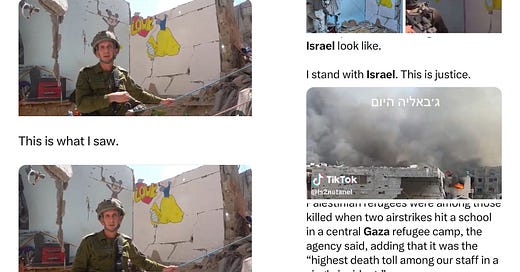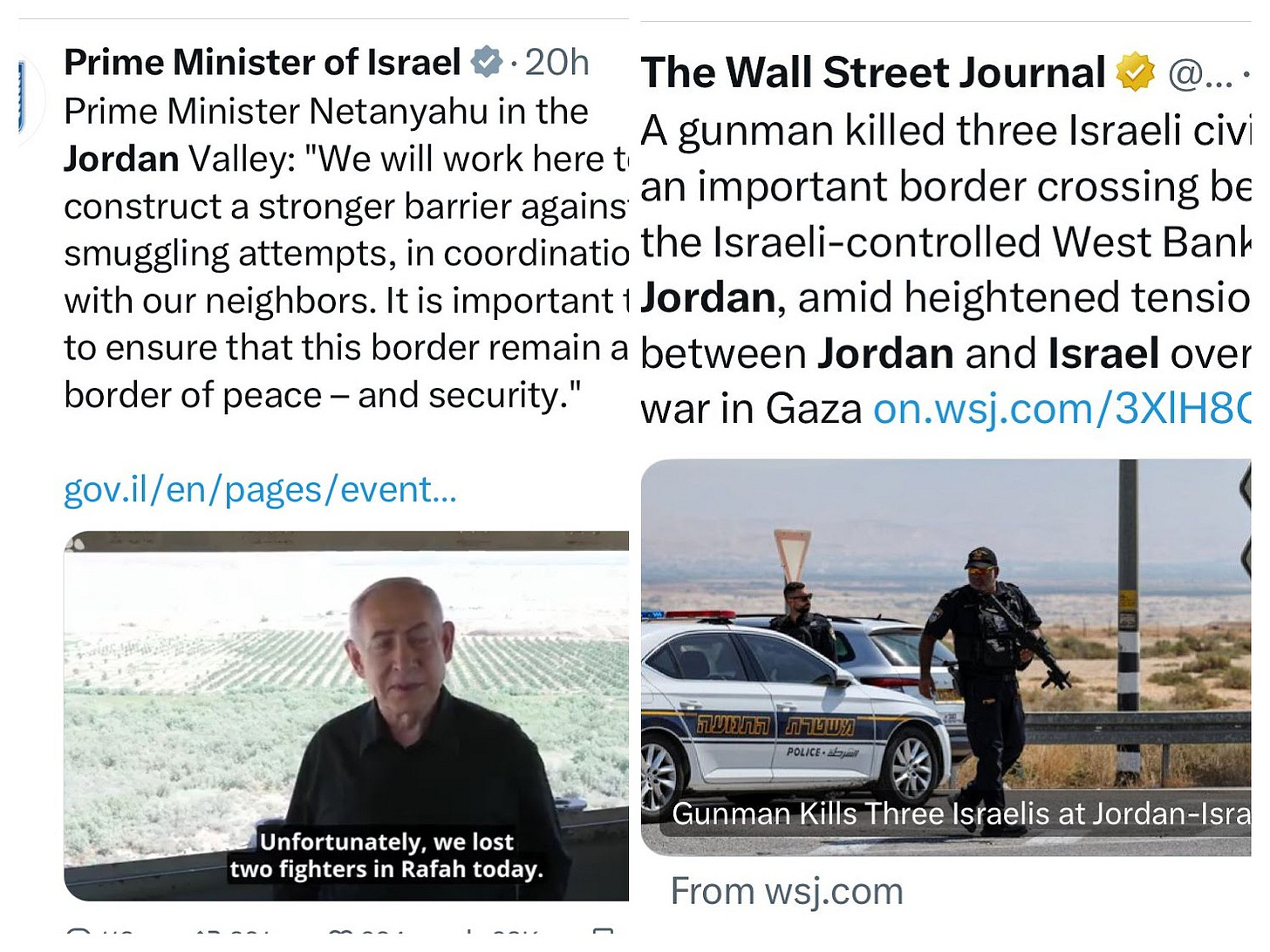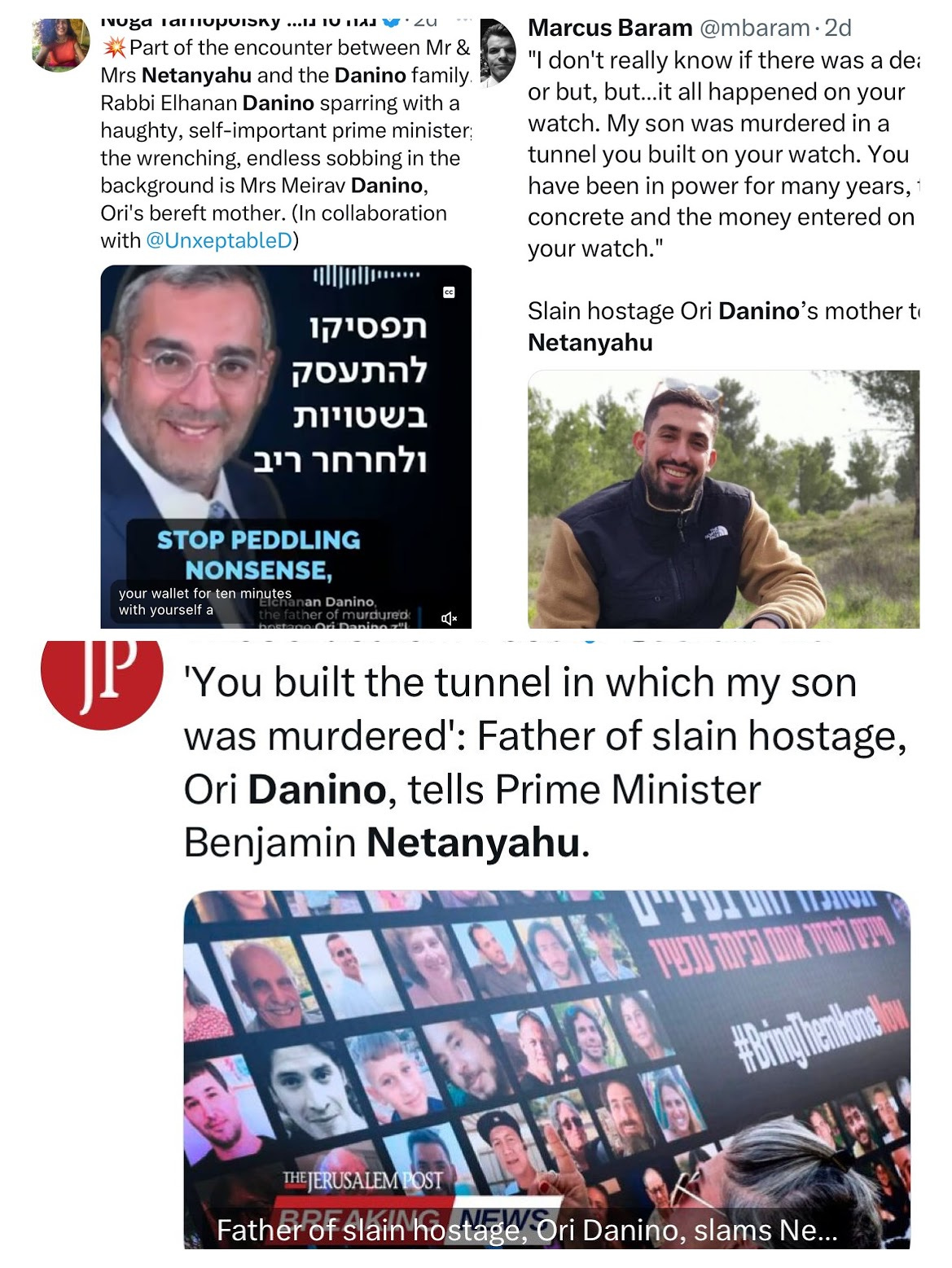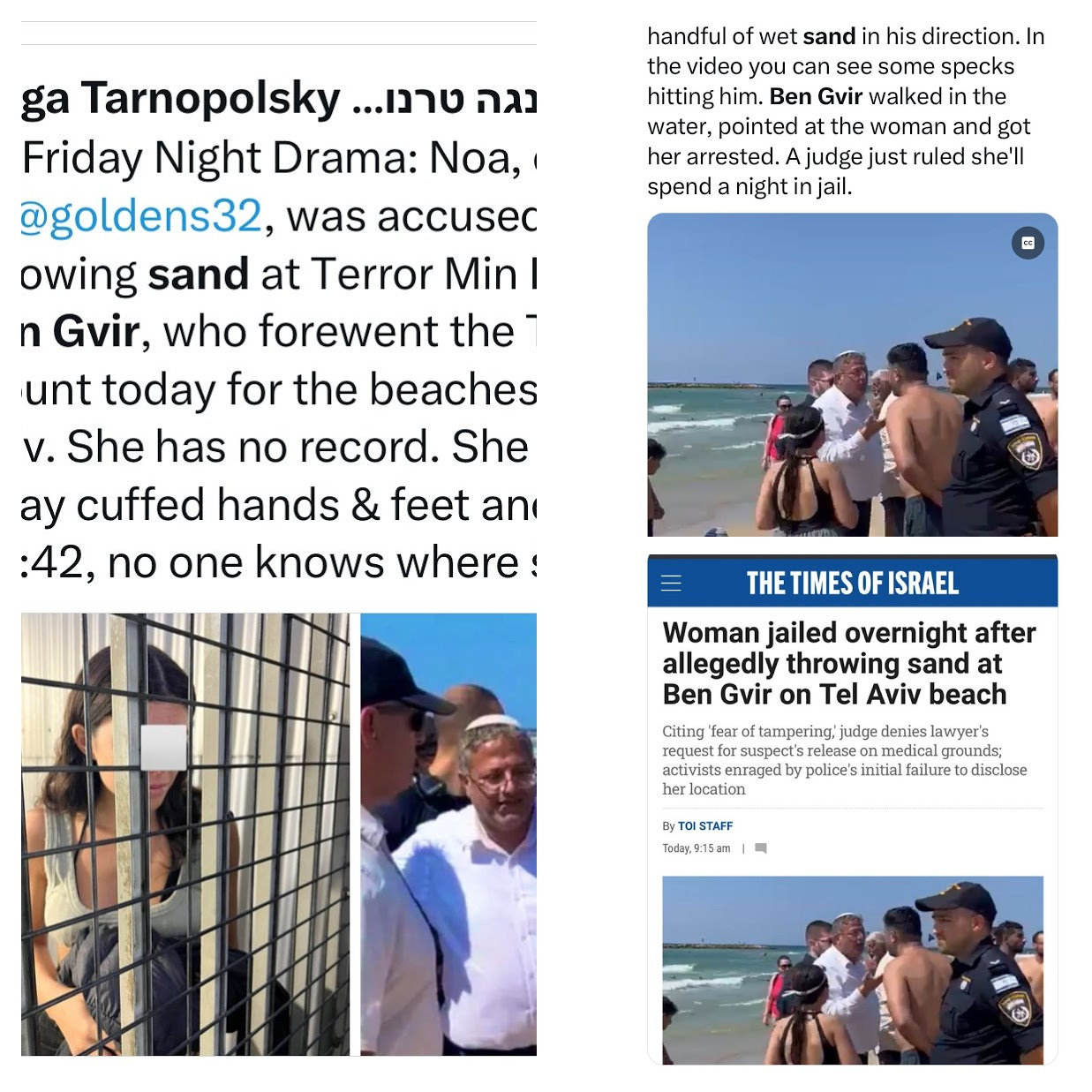Israel at War - Day 343
1. IDF Spokesperson Shares Details of Last Moments of Slain Hostages; Fighting in Gaza Continues
The IDF shared with families of hostages slain last week by Hamas, and later with the public, a video containing harrowing details of the last few weeks and moments of the hostages lives, before they were shot dead by their captors.
In a video, taken in the tunnel where the hostages were held and killed, the IDF spokesman described the difficult conditions in which the hostages were held; with no room to stand upright, no fresh air or sunlight, and no sanitary installations. Contrary to initial autopsy reports, the spokesman said that the slain hostages had defensive wounds, indicating that they tried to fight off or escape their captors. The spokesman added that the six hostages were killed on August 29th, and their bodies retrieved by Israel two days later.
The reports of the “horrific conditions” in which the slain hostages were held, and growing public sentiment that they could have been released, alive, in a ceasefire/hostage deal, continue to spark local vigils and national protests, with nearly 750,000 people taking to the streets of Tel Aviv, Jerusalem, Haifa and in other locations around the country, in the largest protest since October 7th.
As fighting in Gaza continues, two Israeli soldiers were killed and four others were seriously wounded in a helicopter crash in Rafah, during a rescue mission. IDF Jet fighters attacked a Hamas complex in central Gaza, which used to serve as a school. According to the Hamas information office, 18 people, including six UN employees, were killed in the strikes. Defense Minister Yoav Gallant told the media that the IDF was able to obtain a document, said to be written by the commander of Hamas' Khan Yunis brigade, who was killed by the IDF, which says that 70 percent of the organization's weapons, including 95 percent of the rockets in its possession, were destroyed due to IDF attacks, and that 50 percent of Hamas' armed operatives have been killed or wounded, and many other fighters have fled.
In another location, there were reports of a commando operation deep inside Syria against an Iranian factory that produces missiles and rockets for use against Israel. The operation is described in foreign media as very sophisticated and creative, of secret agents rappelling down ropes into the factory, destroying some units, and taking documents. The operation is attributed to Israel, but Israel declines to admit or deny responsibility. In another location, Israel raided Syrian targets.
2. Three Israelis Killed in Shooting Attack at the Border Crossing Between Israel and Jordan
A Jordanian truck driver shot and killed three Israeli civilians employed at the King Hussein border crossing (Allenby Bridge), earlier this week. The assailant was shot dead by border crossing security guards. The border crossing was immediately closed for the passage of both pedestrians and trucks and later reopened for pedestrians only.
Israeli media reported that thousands of people celebrated the killing of the three Israeli men in the streets of Amman, shortly after the news of the attack broke. Fourteen hours after the attack, Jordan’s foreign ministry issued a statement stating Jordan’s "firm stance rejecting and condemning violence and harm to civilians for any reason." The statement also highlighted Jordan’s commitment and efforts to secure a ceasefire in Gaza calling for “addressing all causes and escalatory steps that generate it”, and reiterated Jordan’s repeated warnings of the implications of Israel’s continued aggression in Gaza, the escalation in the occupied West Bank, and the attacks on Islamic and Christian holy sites in Jerusalem.
Several days after the shooting attack, PM Netanyahu visited the Allenby Bridge border crossing and said that Israel will work closely with the Jordanian government to "establish a stronger barrier against [arms] smuggling" and terrorist infiltrations. “We know that we need to secure our eastern border with Jordan. This is a border of peace. We are partnering with the Kingdom of Jordan to ensure that it remains so,” Netanyahu said.
3. A Bereaved Father, of One of the Hostages That Were Murdered In Custody, Accuses PM Netanyahu
PM Netanyahu and his wife Sara, attended the Danino family Shiva (the traditional period of seven days of mourning for the dead) of the Danino family. Their son, Ori Danino, was one of the six hostages whose bodies were found last week in a twenty meter (66 ft) deep tunnel in Gaza. The father, a Rabbi, and a right-wing supporter confronted PM Netanyahu, saying: “My son was killed in a tunnel you built.” The father claimed that Netanyahu was responsible for the fact that his son was not rescued alive through a deal with Hamas. The six hostages were murdered by Hamas operators after they sensed that Israeli army unit was about to enter the tunnel where they were hiding. That event contradicted PM Netanyahus claims that only military pressure can make Hamas release the hostages. They were murdered 24-36 hours before IDF soldiers entered the tunnel. “You were in charge”, he shouted painfully at PM Netanyahu, “and you could save them if you closed a deal. You were in charge of the doctrine to give Hamas millions of dollars and cement so they could build all those tunnels. You were the one that decided that Hamas is a strategic asset to Israel.” PM Netanyahu tried to answer, but he couldn’t provide a reasonable response. In addition, Ms. Netanyahu, added: “You are probably saying what you were told.” This accusation raised a public wave of resentment and anger. The conversation echoed all over the media in both TV studio panels and the public discourse.
4. A 27-Year-Old Woman Was Indicted for Throwing Sand at Ben Gvir
This developing story began on Friday, when the Minister of National Security, extreme-right Otsma Yehudit (Jewish Power) leader, Itamar Ben Gvir, visited Tel Aviv beach with some family members. He was escorted by official bodyguards. While he was walking around, a 27-year-old woman, wearing a bathing suit, who was in the water, allegedly threw sand toward Ben Gvir. She was immediately arrested, handcuffed, and taken to a police station where she was questioned. She denied throwing sand. The event was not properly documented and in the short video that was released, it was impossible to see if and what was thrown towards Ben Gvir. The police kept her in custody for hours and refused to release her on bail. She was later taken to prison in handcuffs and leg shackles. The police, whom Ben Gvir is in charge of, vociferously claimed that she could not be released because she was dangerous and they asked the court to keep her in custody. The court released her for home custody and within 24 hours filed an indictment against her for attacking the minister. This raised a public debate on selective enforcement, where she was indicted in record time, while others who illegally broke into army bases were not even taken in for police questioning. The woman denies the allegations.
5. PM Netanyahu Tried to Prevent the TIFF Screening of “Bibi Files”, a documentary
PM Netanyahu filed a petition in an Israeli court asking to block the screening in Toronto of a documentary called “Bibi Files”. The petition was rejected. The documentary, which premiered at the Toronto International Film Festival (TIFF), depicts footage of police investigations of PM Netanyahu, his wife Sara, his son Yair, other advisers, and their assistants. These investigations resulted in indictments of corruption: bribery, fraud and breach of trust, a trial that has been ongoing for several years in a Jerusalem district court. PM Netanyahu is scheduled to take the stand on December 2nd, when the trial is scheduled to resume. Israeli law bans the option of showing, in court, videos from police investigations unless the court specifically allow it. As a result, the film cannot actually be screened in Israel. One of the producers, Raviv Drucker, is a reknowned investigative journalist at Channel 13 News, who has screened many TV stories on the trial and is known for his accurate journalistic approach, as well as for the fact that he strongly dislikes PM Netanyahu.
The film was directed and produced by two well known and highly regarded film makers. The director is Alexis Bloom, and the producer is Alex Gibney. The version that was screened was not a final cut, but the producers explained that their aim is to attract investors and buyers. The also perceived the importance for the international community to have a better understanding of PM Netanyahus character.









